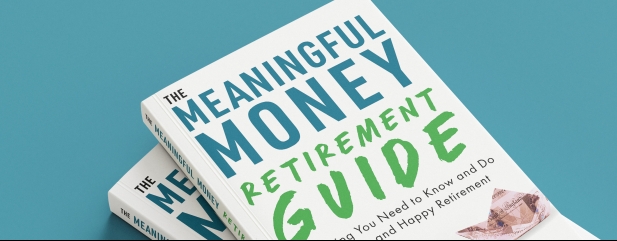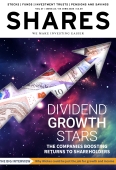Archived article
Please note that tax, investment, pension and ISA rules can change and the information and any views contained in this article may now be inaccurate.
Book Review: ‘The Meaningful Money Retirement Guide’, by Pete Matthew

The bookshelves are full of classic books on investing, some of which we have reviewed in these pages, as well as plenty of books of the ‘How I made a million trading from my sofa’ type, which is not our forte, but we haven’t come across many which focus specifically on retirement and how to prepare yourself for it.
As the author Pete Matthew, who by day is head of a family-owned financial planning firm in Cornwall, explains, we all have a vague notion of what we will do when we the happy day comes and we can finally say goodbye to the office or wherever it is we’ve spent the best part of our lives.
For some, the dream will be to spend our retirement traveling, indulging in good food and fine wine, going to the theatre and shows.
For some, it will about taking long strolls along the beach and enjoying the outdoor life, but whatever we plan to do most of us will look forward to no longer having to worry about a daily routine.
Granted, for some the idea of stopping work altogether will be anathema, so the aim might be to gradually reduce the number of hours worked and balance that with more free time, but whatever we want to do ‘in retirement’, our ability to live out those dreams will largely be dictated by our finances.
Where Matthew’s previous book, The Meaningful Money Handbook, discussed how to build wealth over the course of a career, The Meaningful Money Retirement Guide follows on and looks at three distinct phases – ‘The Home Straight’ leading up to retirement, ‘The Great Transition’ into retirement and ‘The New Normal’ once we have adjusted to retirement.
In ‘The Home Straight’, which could be five to 10 years before we plan to retire, we need to start getting all our ducks in a row, working out where we stand financially, maybe making a big push to maximise our savings, and getting our heads round concepts such as pension crystallisation and drawdown.
Having accumulated wealth by spending less than we earned, except for the fortunate few, from hereon in most of us will spending more than we are earning.
A PERIOD OF TRANSITION
In ‘The Great Transition’, we will start accessing our savings and pensions for the first time, including the state pension maybe, depending on what age we have decided to retire.
Our daily routines will change and we will move to a new pattern of spending, which might seem out of proportion to our income at first, but then we will adjust, and if we have surplus cash we might move to what accountants call the ‘decumulation’ phase, with the aim of whittling down our capital over time.
Once we move on to ‘The New Normal’, which could be months or years into retirement, our spending patterns will have become more regular and predictable, we’ll be more focused on the here and now and enjoying the moment, and for the most part things won’t change from a financial point of view, assuming we don’t need medical care.
There is also the delicate matter of what happens after you retire, and part of the book is devoted to how you can pass your estate on to your family.
True to his role as a professional adviser, Matthew’s aim throughout the book is to prepare us not just financially but mentally for the each of the three stages of retirement, explaining the implications of each one and providing checklists so we are ready ahead of time for the lifestyle changes we will encounter once we decide to down tools for good.
All in all, the book is well-written and we would highly recommend it to anyone who might have questions about how to plan for their retirement, and looking beyond that, how to transfer on their wealth.
COMPETITION
To win a copy of The Meaningful Money Retirement, courtesy of publishers Harriman House, just answer the following question: What is the current state pension age for men and women? The first correct answer out of the hat will receive a free copy of the book. Entries to: shareseditorial@ajbell.co.uk
Important information:
These articles are provided by Shares magazine which is published by AJ Bell Media, a part of AJ Bell. Shares is not written by AJ Bell.
Shares is provided for your general information and use and is not a personal recommendation to invest. It is not intended to be relied upon by you in making or not making any investment decisions. The investments referred to in these articles will not be suitable for all investors. If in doubt please seek appropriate independent financial advice.
Investors acting on the information in these articles do so at their own risk and AJ Bell Media and its staff do not accept liability for losses suffered by investors as a result of their investment decisions.
Issue contents
Feature
Great Ideas
News
- SRT Marine shares sail to all-time high on latest systems order
- Eagle Eye shares hit five-year low on loss of major US contract
- Nick Train keeps the faith with Finsbury Growth & Income Trust
- UK Strategic Defence Review sends security stocks higher
- GameStop turns to bitcoin as it tries to transform growth profile
 magazine
magazine








